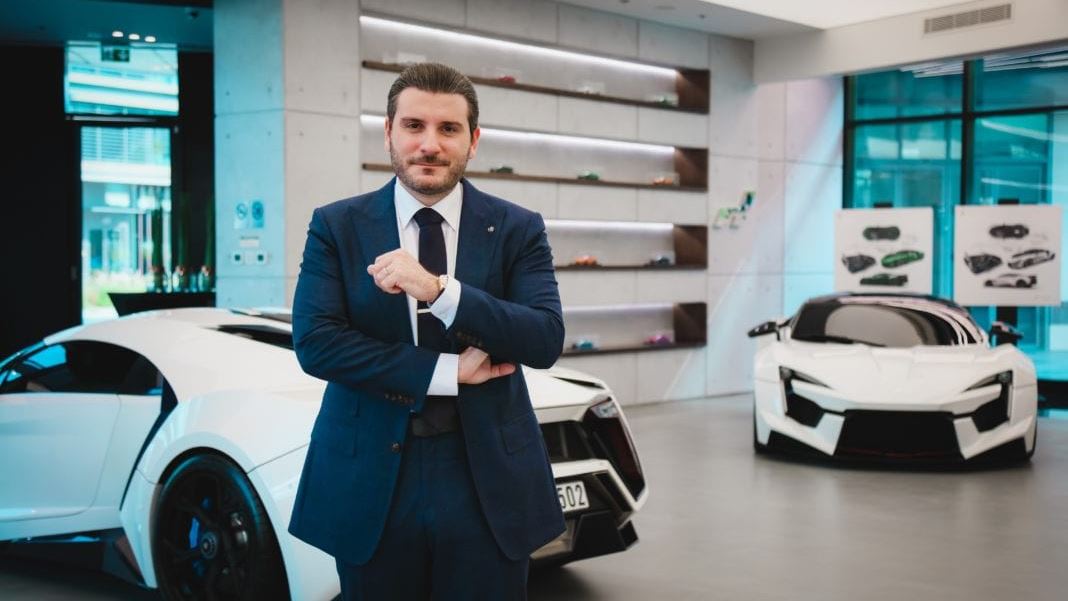- Latest: Welcome to Auto Futures - Mobility News, Features, Exclusives and More...
- Latest: Subaru Europe Unveils the Brand's First All-Electric Compact SUV
- Latest: Lucid, Nuro & Uber Partner on Next-Generation Autonomous Robotaxi Service
- Latest: GM & Redwood Materials to Repurpose EV Batteries for Energy Storage
- Latest: Stellantis Discontinues Hydrogen Fuel Cell Technology Development Program
- Latest: Paving the way for an Electrified Future - L-Charge CEO
In Focus – Defining The Future in Dubai – The CEO of W Motors, Ralf R. Debbas

Unlike Dubai-based W Motors, many companies in the hypercar space are not embracing future mobility solutions. But not many car companies are like W Motors, full stop.
Auto Futures caught up with W Motors’ Founder and CEO, Ralph R. Debbas.
He told us: “We are developing our first autonomous vehicle, the MUSE, that was unveiled during the Shanghai Auto Show in April 2019. We are also finalizing the Ghiath Beast Patrol, a fully connected and innovative vehicle developed especially for the Dubai Police with some cutting-edge technological features making it one of the most advanced security vehicles in the world. We believe that in the next 10 years, electric cars will become more and more prominent in the automotive world.
“This is why here, at W Motors, we are now switching our emphasis towards electric vehicles; the next Supercar we launch later this year for example, will be fully electric,” says Debbas.
Unique design and exclusivity, limited editions and limited series, a bespoke program, cutting edge technology and innovation, power and performance are some things that sets W Motors apart. But what I found to be really cool is that the company has something called ‘Special Projects Division’.
When I first heard this, I had everything from futuristic robots to secret scientific experiments come to mind, so I asked Debbas to clarify what exactly this division does.
He says: “We’ve always had an eye on the future of mobility which is why we created the Special Projects Division, that includes the Muse and Ghiath previously mentioned. Our Special Projects Division is committed to driving the development of sustainable automotive solutions for the next generation as well as bespoke specialist vehicles designed for specific industry sectors and markets.”

W Motors and the Autonomous Challenge
Future mobility has had a huge impact on the automotive industry. While one wouldn’t have imagined the impact to have reached the hypercar segment.
But Debbas disagrees. “Electrification is part of the automotive revolution. The so-called revolution is moving faster than initially expected, and suppliers of batteries are progressing in their technology at a tremendous pace. In the coming few years, the public’s perception of electric cars will be different to how it is today, and performance of electric cars will continue to improve.
“We see most companies gradually switching to electric, and we will certainly follow the trend, offering the absolute latest in technologies combined with pure driving performance.”
That said, Debbas echoed a sentiment that many automotive professionals have about future mobility. The fact that most future mobility solutions are still in the very nascent stages, there are quite a few limitations for carmakers.
He told us: “Not all the technologies are fully developed yet, and there are some structural limits. Regarding the technologies, for example the batteries are the main problem, the autonomy is not good enough, they take too much time to recharge and the life is not long enough. Regarding the structural limits, for example there aren’t enough recharge points to meet the demand.
“There are even more limits for autonomous vehicles, for example the 5G connection is not good enough and the infrastructure is not ready for a complete autonomous mobility.”
The other thing that I was really curious about was The MUSE, W Motors’ fully electric self-driving car, which saw the carmaker collaborate with the likes of AKKA Technologies, Magna Steyr and Microsoft.
“It was designed in-house by the W Motors team, and sustainability, safety and security underpin its design rationale combined with cutting-edge cyber security and safety systems. Whilst the core technology is there, the main challenge remains with the infrastructure surrounding areas of use for autonomous vehicles.”

THE FUTURE MOBILITY TECHNOLOGIES WILL DEFINITELY IMPACT THE HYPERCAR SEGMENT, STEALING MORE AND MORE SHARE WITH TIME.
In January, the company broke ground on a new manufacturing facility in Dubai Silicon Oasis, the first of its kind in the Middle East.
Spread over a 120,000 sqft., the first phase of the project is set to be completed later this year.
W Motors has quite a few other things in the pipeline. When asked about the company’s plans for the near future, Debbas said that W Motors is gearing up for an upcoming EV Supercar launch, as well as the opening of an automotive academy.
Speaking about his outlook for future mobility trends in the hypercar segment, he says: “Car culture is changing. Now the hybrid is gaining shares, but the fully electric hypercars are still not completely appreciated. This is a very niche segment and in most of the cases the automotive enthusiast that can afford the hypercars are still attached to combustion engines and to be able to drive their own cars.”
“Since electric cars are exciting and deliver their power in a very different and more efficient way, they will appeal to the car enthusiast for sure, but it will take time to change people’s habits.”
He concludes: “The future mobility technologies will definitely impact the hypercar segment, stealing more and more share with time.”

